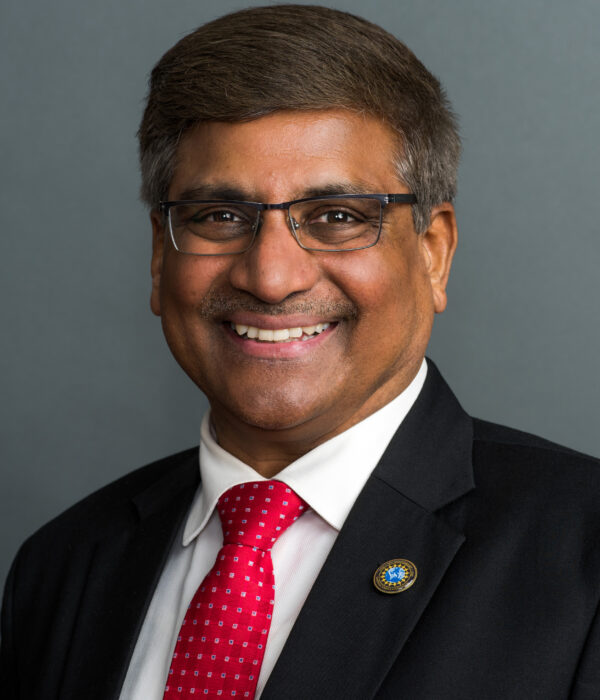The Honorable Sethuraman Panchanathan is a computer scientist and engineer and the 15th director of the U.S. National Science Foundation (NSF). Panchanathan was nominated to this position by the President of the United States in 2019, and subsequently, unanimously confirmed by the U.S. Senate on June 18, 2020. NSF is a $9.06 billion independent federal agency and the only government agency charged with advancing all fields of scientific discovery, technological innovation and STEM education.
Panchanathan is a leader in science, engineering and education with more than three decades of experience. He has a distinguished career in both higher education and government, where he has designed and built knowledge enterprises, which advance research innovation, strategic partnerships, entrepreneurship, global development and economic growth.
As director, Panchanathan maintains leadership roles on several key interagency councils and committees, including as co-chair of the National Advisory Council on Innovation and Entrepreneurship and is a member of the White House CHIPS Implementation Steering Council and the White House Gender Policy Council. He is also chair of the Interagency Arctic Research Policy Committee and co-vice chair of the Council for Inclusive Innovation.
Panchanathan previously served as the executive vice president of the Arizona State University (ASU) Knowledge Enterprise, where he was also chief research and innovation officer. He was also the founder and director of the Center for Cognitive Ubiquitous Computing at ASU. Under his leadership, ASU increased research performance fivefold, earning recognition as the fastest growing and most innovative research university in the U.S.
Prior to joining NSF, Panchanathan was appointed by the President to serve on the National Science Board where he was a chair of the Committee on Strategy and a member of the External Engagement and National Science and Engineering Policy committees. Additionally, he was chair of the Council on Research of the Association of Public and Land-grant Universities and co-chair of the Extreme Innovation Taskforce of the Global Federation of Competitiveness Councils. Arizona's governor appointed Panchanathan as senior advisor for science and technology in 2018. He was the editor-in-chief of the IEEE Multimedia Magazine and editor and associate editor of several international journals.
Panchanathan's scientific contributions have advanced the areas of human-centered multimedia computing, haptic user interfaces and ubiquitous computing technologies for enhancing the quality of life for individuals with different abilities; machine learning for multimedia applications; and media processor designs. He has published close to 500 articles in refereed journals and conference proceedings, and has mentored more than 150 graduate students, postdocs, research engineers and research scientists, many who now occupy leading positions in academia and industry.
For his scientific contributions, Panchanathan has received numerous awards, including Honorary Doctorates from prestigious universities, Distinguished Alumnus Awards, the Governor’s Innovator of the Year for Academia Award, the Washington Academy of Sciences Distinguished Career Award and the IEEE-USA Public Service Award.
Panchanathan is a member of the National Academy of Engineering, a fellow of the National Academy of Inventors, where he also served as vice president for strategic initiatives. He is also a fellow of the American Association for the Advancement of Science, the Canadian Academy of Engineering, the Association for Computing Machinery, the Institute of Electrical and Electronics Engineers and the Society of Optical Engineering.
Panchanathan is married to Sarada "Soumya" Panchanathan, an academic pediatrician and informatician, who has taught medical students, pediatric residents and informatics fellows. They have two adult children, Amritha and Roshan.
EDUCATION
AREAS OF EXPERTISE
A national leader in science, engineering, and education with more than three decades of experience in both higher education and government. Designed and built knowledge enterprises to advance research innovation, strategic partnerships, entrepreneurship, global development, and economic growth.PUBLICATIONS
- (Too numerous to list individually)

